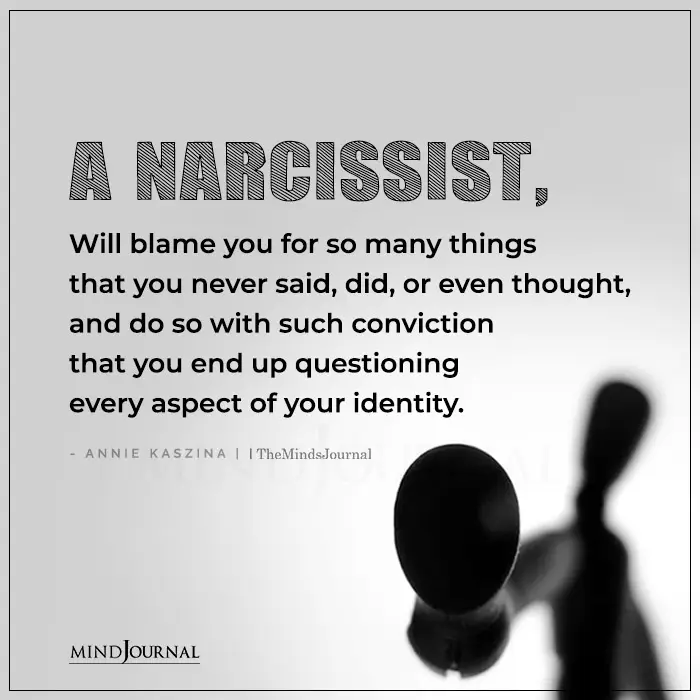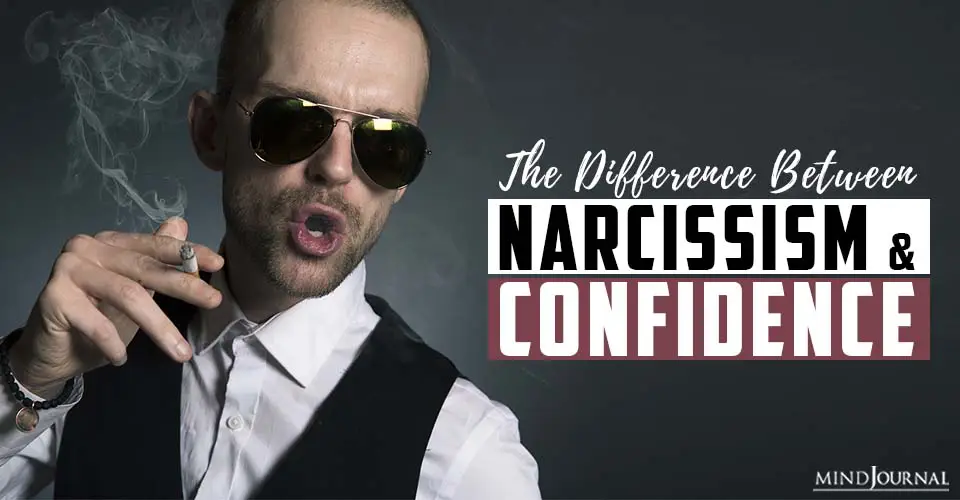Many people tend to confuse narcissism with having high self-confidence, but the truth is, these two qualities could not be more different from each other. From a distance, narcissism might even look attractive, but when you come closer, you will realize that it’s one of the most toxic behaviors out there. So, never confuse narcissism with self-confidence.
On the surface, many individuals with a strong narcissistic streak may appear ultra-confident. They love being the center of attention and often believe they rarely make mistakes. Most tout their own perspective and do so without inhibition. The unwavering belief that they are right, upstanding, and honorable is strong. Some boast that they don’t have a filter, because they feel entitled to say whatever they want.
Yet, many of these personality traits indicate the presence of an extreme and robust defensive structure, not confidence. Although defense mechanisms are normal and necessary, when they are impenetrable, rigid, and static, they may be a barrier to the deeper emotional capacities which allow for self-awareness, conscientiousness, and attunement to others.
This points to the possibility that the person who seems confident may actually be profoundly insecure and may protect himself or herself from an awareness of insecurities with a hefty and unconscious defensive system. Like a force field, this structure keeps out uncomfortable emotional states that threaten a fragile sense of self.
Deflection, projection, distortions, and denial act in unison to protect the person from the pain of accountability, insight, and empathy.
Read 5 Most Common Signs of Narcissism
Extreme deflection and projection allow the person to expel accountability and place blame elsewhere, contributing to the individual’s desire to control and police others. A situation may arise when the person cannot deflect accountability because he or she has been “caught red-handed.” In this scenario, the person may unconsciously employ the cognitive distortion called a victim stance in order to escape consequences.
For example, Lisa is caught submitting an employee’s work as her own. When she is confronted, instead of feeling deep remorse, she cries and tells her boss her pet is sick, and she hasn’t been able to concentrate on work. Lisa uses an emotional hardship to excuse a nefarious deed.
A person should always attempt to access support when going through a difficult time; however, using a personal hardship to excuse a separate behavior that hurts another is an indication that the person may be utilizing the victim stance cognitive distortion.
A second example illustrates the unconscious and extreme use of deflection and projection. Rick enjoys attention from others. He welcomes the recognition and often spends time chatting and texting with individuals who admire him.
Yet, when Kara, Rick’s partner, heads out for a “girl’s night,” Rick accuses her of being provocative and a flirt. He calls her repeatedly during the evening to check up on her and picks a fight when Kara arrives home. Kara is embarrassed, upset, and tired of the conflict, so she stops going out with her friends. In this example, Rick lacks insight and projects his need for adoration and attention onto Kara, which allows him to feel entitled to correct, control, and dominate the situation.

Extreme defenses alter a person’s version of reality. The person views the world through a distorted lens, which often allows him or her to feel like a victim. “Badness” is unfairly projected onto others, and the person feels honorable and upstanding when he or she can “set another person straight.” A sense of entitlement and a need to punish or correct others is frequent. Often this person is able to easily align other people with him or her through the use of a common scapegoat.
Alternatively, a person who is truly confident walks with defenses that are flexible and malleable. He or she has a more secure sense of self that is able to tolerate awareness of insecurities and vulnerabilities. Softer defense mechanisms allow painful feelings to penetrate a person’s conscious awareness.
Although the uncomfortable feelings tax a person’s sense of self, they may allow for the development of insight, self-awareness, accountability, and empathy. These experiences may feel unpleasant, but they allow a person to evolve as a human being and embody qualities that create and sustain healthy relationships. They also indicate a person may have a high EQ or emotional quotient.
Read The Anatomy of Narcissism
Take the example above. Lisa made a mistake. She experienced a serious lapse in judgment. However, if Lisa were truly confident, she would not need to employ the defensive artillery which prevents her from experiencing authentic remorse.
An active conscience and intense remorse are healthy capacities that motivate an individual to take responsibility for his or her actions, make amends, and repair the damage that was done.
Instead of playing the victim in order to garner sympathy for herself, Lisa takes responsibility for her mistake, conveys a sincere understanding of how her mistake hurts others and goes to great lengths to make amends. Because searing remorse is painful, the experience is not easily forgotten, and Lisa is less likely to repeat the mistake in the future.
Taking the second example, say Rick has softer defenses that allow him an awareness of his insecurities. He opens up to Kara: “Kara, you are so lovely. Sometimes I worry I am not good enough for you. Maybe it is silly, but I worry you’ll fall for someone else when you go out with your friends.”
Hopefully, Kara values Rick’s ability to open up and be vulnerable. She may offer empathy and support: “Rick, I only have eyes for you. You mean everything to me. That doesn’t just go away when a Luke Bryant look-alike walks through the cafe door. I love you.”
An awareness of insecurities allows a person to cope with these insecurities in a healthy way, which may promote healthy self-regulation. If a person is unaware of his or her insecurities, he or she may be unconsciously employing deflection and projection to an extreme. An individual who is highly and rigidly defended may be unable to access the deeper and uncomfortable feeling states which tax his or her fragile sense of self.
Read How Cognitive Distortions Harm Us
Yet it is these feeling states that allow for self-awareness, insight, and empathy. Differentiating between the victim stance cognitive distortion and authentic accountability is also critical when assessing a person’s EQ. Insight, self-awareness, and empathy are capacities that allow an individual to grow, evolve, nurture, and empower those around him or her.
Written By Erin Leonard
Originally Appeared On Psychology Today









